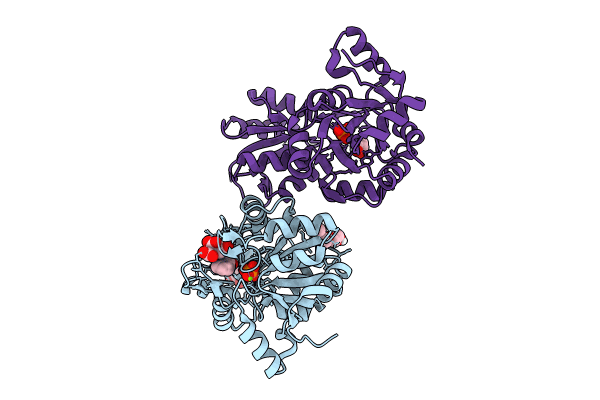
Deposition Date
2023-09-05
Release Date
2024-06-12
Last Version Date
2024-10-16
Entry Detail
PDB ID:
8QFW
Keywords:
Title:
Murine pyridoxal phosphatase in complex with 7,8-dihydroxyflavone
Biological Source:
Source Organism(s):
Mus musculus (Taxon ID: 10090)
Expression System(s):
Method Details:
Experimental Method:
Resolution:
2.00 Å
R-Value Free:
0.20
R-Value Work:
0.18
R-Value Observed:
0.18
Space Group:
I 2 3


